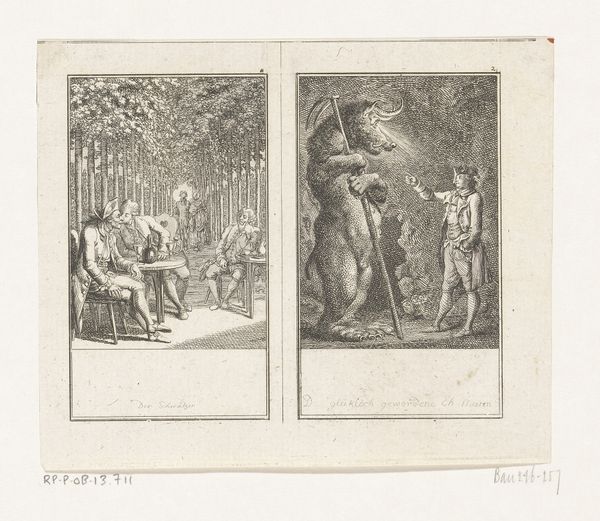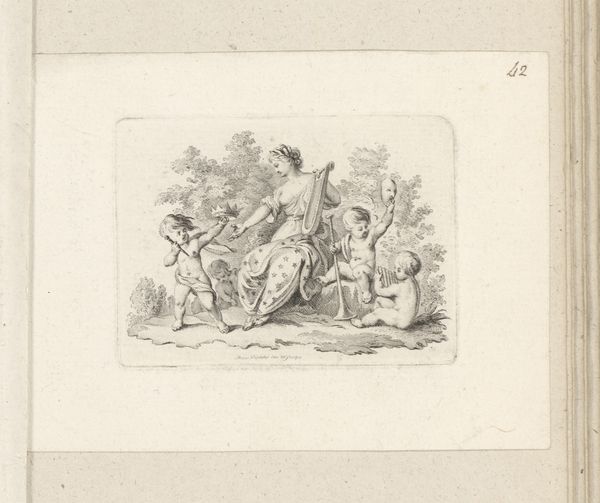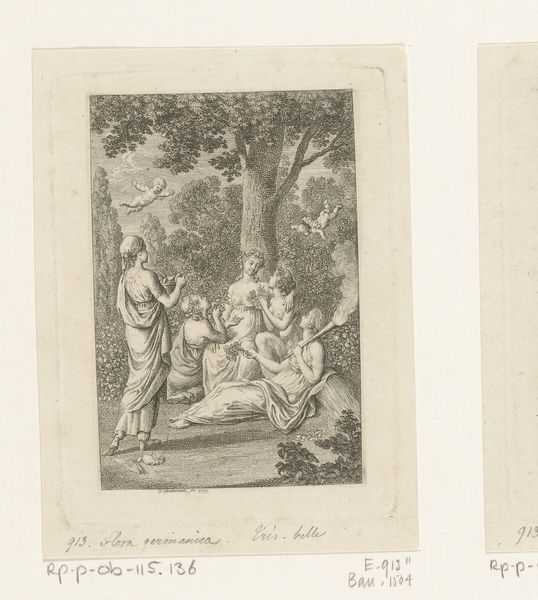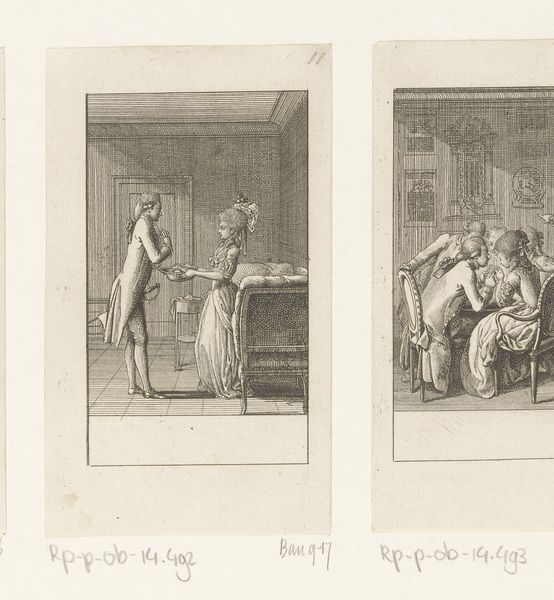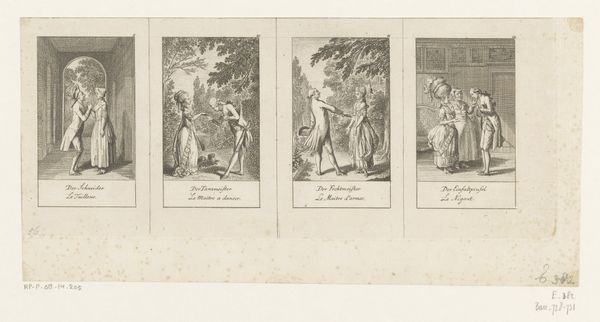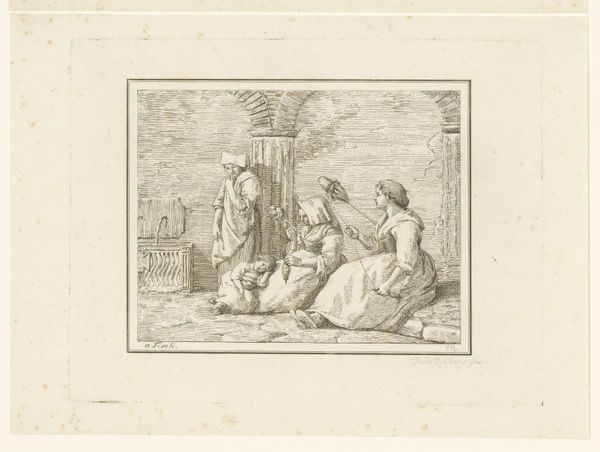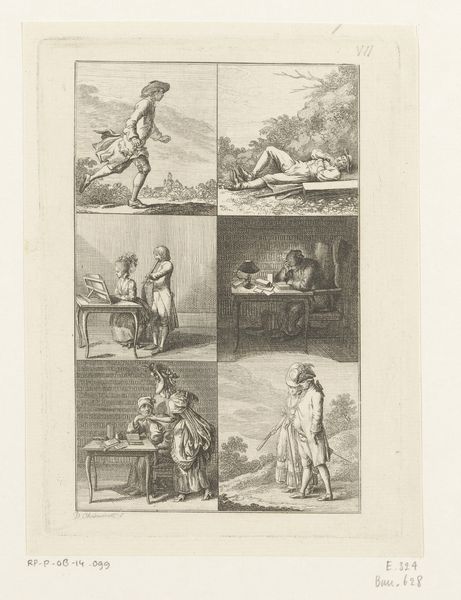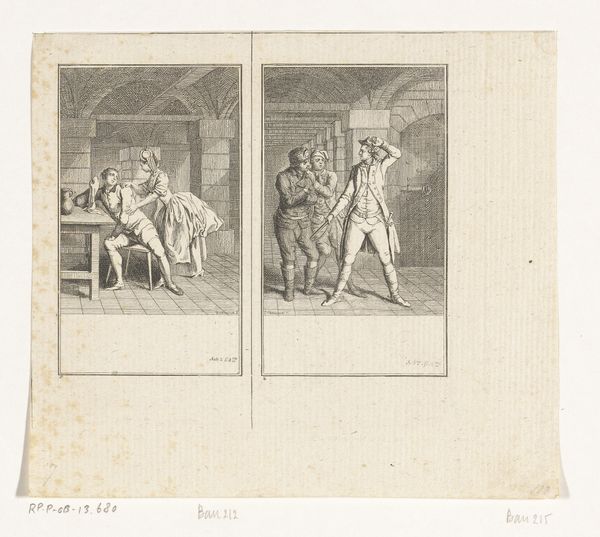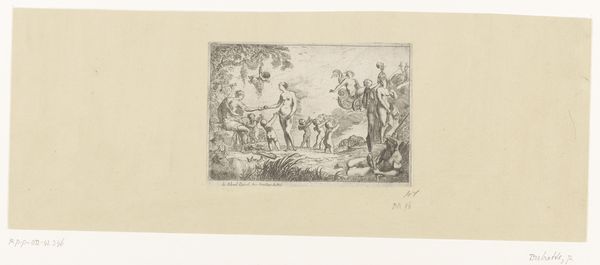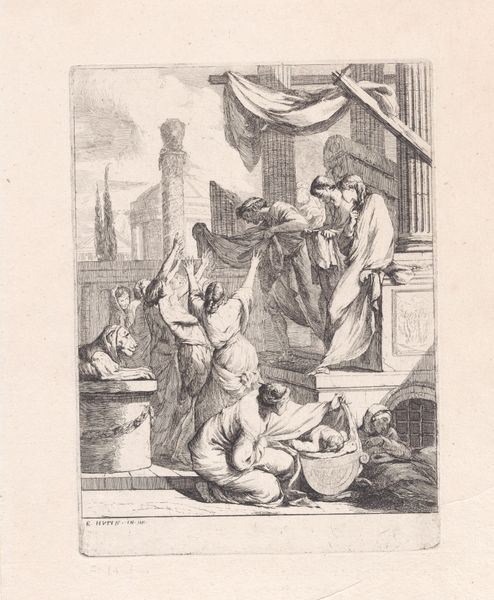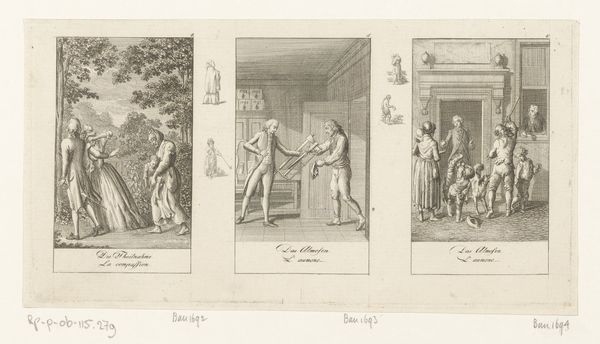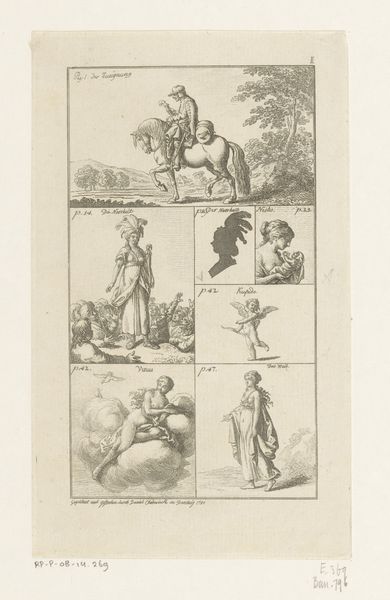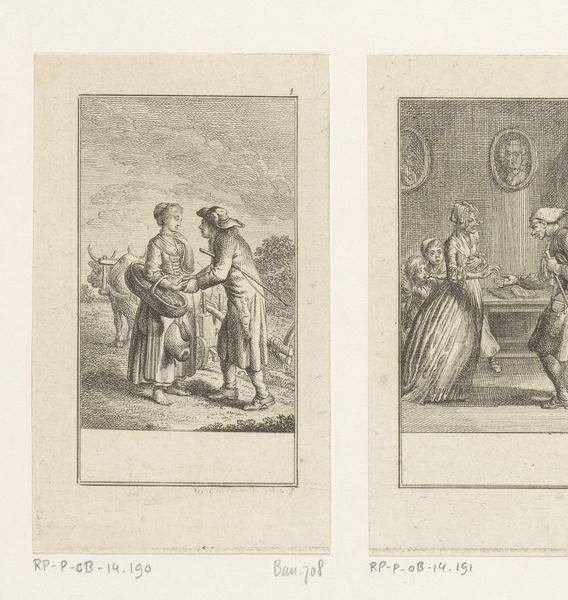
Dimensions: height 109 mm, width 392 mm
Copyright: Rijks Museum: Open Domain
Editor: We’re looking at Daniel Nikolaus Chodowiecki's "Zes maanden van het jaar," created in 1777. It's an etching, a print comprised of six different scenes of 18th century life. The scenes are incredibly detailed; they feel like snapshots of everyday activities. How do you interpret this work in the context of its time? Curator: This etching offers a fascinating glimpse into the social hierarchies and labor divisions of the late 18th century. Chodowiecki's choice of etching as a medium also speaks volumes; prints were accessible and disseminated quickly, making his social commentary reach a wider audience. Notice the stark contrasts: the leisure activities of the wealthy versus the strenuous labor of the working class. Editor: Yes, I see what you mean. There's a scene with a man working the fields and what seems to be child labor, contrasting with indoor scenes of people eating or celebrating. Was Chodowiecki trying to make a political statement? Curator: I think it’s essential to view it as a critique, though a subtle one. Consider the Age of Enlightenment, where ideas of equality and liberty were circulating. However, that supposed equality often excluded many— women, enslaved people, the poor. These images reveal these hypocrisies. The cityscape also suggests the rapid urbanization and its impact on social dynamics. What do you notice about the presence, or absence, of women in these scenes? Editor: That's a great point. Women seem to be confined mostly to domestic roles, which reflects the societal norms of the time, but they are also presented as nurturing. The narratives seem like a comment on what they were restricted to. Curator: Exactly! He's capturing the reality of the "domestic sphere" being assigned to them during that time. Overall, the print urges us to reflect on which voices and bodies have been historically privileged or marginalized, and it remains important to consider even today. Editor: It’s much more layered than I initially thought. Thank you! It really gives me a new appreciation for the work.
Comments
No comments
Be the first to comment and join the conversation on the ultimate creative platform.
